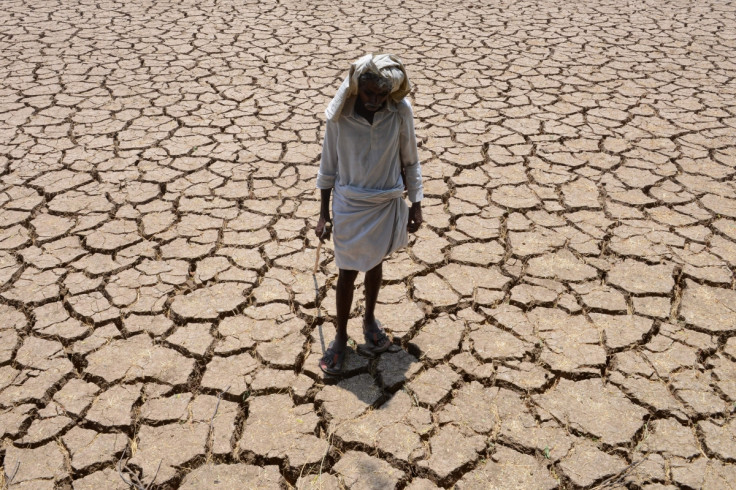India drought: Greenpeace issues SOS for drinking water amidst life-threatening famine

Greenpeace has issued a clarion call to the Indian government to prioritise drinking water for its 330 million people currently in the grip of a devastating drought. At least 12 Indian states are believed to be facing famine and experts have warned that the water crisis could worsen if urgent action is not taken.
On 25 April Greenpeace outlined actions the Indian government needs to take to alleviate the situation. Noting that 5% of water that is extracted is used for human consumption, while 10% is used for industrial consumption, the environmental NGO expressed concern over the way authorities have dealt with the water crisis so far.
Ishteyaque Ahmad, Greenpeace Campaigner for Sustainable Agriculture, said: "This clearly reflects the priorities of the government. But what is more frightening is the insensitivity of the authorities towards the future. We need to accept the reality and look for more sustainable ways of water management, which can reduce the consumption and replenish the groundwater reserves positively."
Prioritising water distribution
Ahmad said that one of the main things India needed to do was to prioritise water consumption, putting meeting the demand for drinking water at the top of that list. He also urged the Indian government to give priority to the growing of food crops, which consumes less water. Greenpeace advocates that cash crops, industrial crops and industries should be placed at the bottom of the priority list.
"Those who say that one or a few consecutive good monsoons will change the situation are either ignorant or are trying to hide the truth, which is very frightening," Ahmad noted. "In fact, we are dehydrating our earth's system by choice and not out of ignorance."
Farming practices
The organisation also highlighted the need to shift to ecological farming practices by implementing a "concrete plan to replenish the biomass or organic matters in the soils". It cited studies that have proved how adequate biomass presence in soils help maintain the moisture and temperature levels, as well as minimise water consumption.
Ahmad added: "Crop selection should be based on the agro-ecology of the region. Governments should gradually shift chemical fertiliser subsidies towards creating decentralised infrastructure for adopting water conserving ecological farming practices. Ecological agriculture farmers should be incentivised."
Reducing and reusing
Greenpeace urged the Indian government to consider ways to properly recycle urban and industrial waste water in order to supply this for urban consumption. In line with this, they believe that surface and underground water sources "should be the last resort".
"The deficit should be supplemented by the harvested rainwater," said Ahmad. "Water usage policies should be based on equity and sustainability. Those who permit or escalate the exploitation of groundwater are big dangers not only for our environment but also India's economic development."
© Copyright IBTimes 2025. All rights reserved.




















